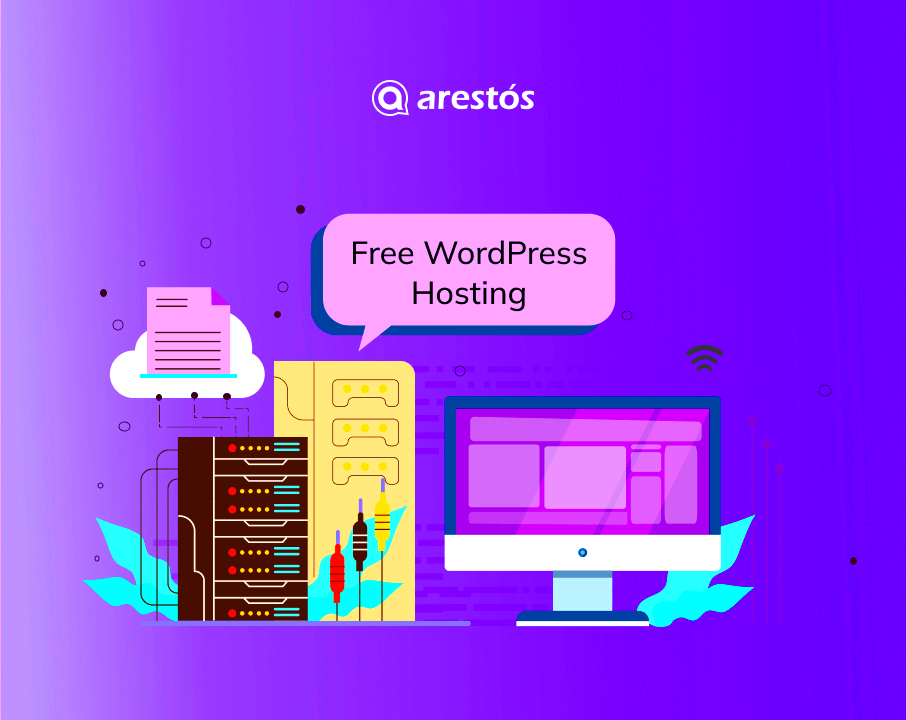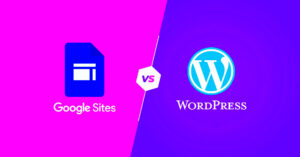Are you thinking about launching a WordPress website but don’t want to break the bank? Free hosting can be a tempting option! But before you dive in, it’s crucial to weigh the pros and cons. In this post, we’ll explore what free hosting for WordPress is, the perks it brings, and the potential pitfalls you might encounter. Let’s get started!
What is Free Hosting for WordPress?

Free hosting for WordPress refers to web hosting services that allow you to set up and run a WordPress website without any associated costs. These services are often provided by companies that hope to attract you to upgrade to paid plans later on. While it sounds appealing, it’s vital to understand what such a service typically offers.
Here are some key features of free hosting for WordPress:
- No Cost: As the name suggests, free hosting doesn’t require any payments from you. This includes domain registration in many cases.
- Basic Resources: You’ll generally receive limited disk space and bandwidth, suitable for small, personal blogs or hobby sites.
- Subdomains: Most free hosting services provide a subdomain (like yoursite.provider.com) rather than a custom domain, which can hinder your brand’s professionalism.
- Limited Support: Free plans usually come with minimal customer support, which might be a drawback if you encounter technical issues.
- Ads: Some providers may run ads on your site, which can detract from your user experience.
- Upgrading Options: While starting for free can be great, most services have tiered plans for when you need more resources or features.
In summary, free hosting can be a viable option for beginners or casual users, but it comes with several trade-offs that are worth considering. Always read the fine print to ensure you’re making the best choice for your needs!
3. Pros of Free Hosting for WordPress

Choosing free hosting for your WordPress site has its share of advantages, particularly for newbies or those on a tight budget. Here are some key benefits:
- No Financial Commitment: You can get started without spending a dime. This is an excellent way to explore WordPress without the anxiety of upfront costs.
- Easy Setup: Free hosting services often provide one-click installations for WordPress, making it super simple, even for tech novices.
- Learning Opportunity: It’s a great platform for learning how to build and manage a website. You can experiment with themes, plugins, and content without financial risk.
- No Long-term Contracts: There are no binding contracts that you need to sign, giving you the freedom to move your site to paid hosting whenever you’re ready.
- Community Support: Many free hosting services have large user bases, making it easier to find help and resources, as others are often facing the same challenges.
In summary, if you’re just starting out, free WordPress hosting can be an excellent stepping stone. It’s low-risk and allows you to gain extensive insights before making a more substantial investment in your online presence.
4. Cons of Free Hosting for WordPress
While free hosting has its perks, it’s important to weigh these against the downsides that may come with it. Here are some cons to consider:
- Limited Features: Free hosting often comes with restrictions on storage space, bandwidth, and website customization options. This can limit your growth.
- Advertising: Many free hosting providers will place ads on your site, which can detract from your brand’s professionalism and user experience.
- Less Control: You may have limited access to your server settings, which can restrict your ability to optimize or add advanced features.
- Unreliable Performance: Free servers might suffer from slow load times and downtimes. This can affect your site’s visibility and user experience.
- Poor Security: Free hosting services typically have weaker security measures, increasing the risk of hacks and data loss.
In short, while the allure of free hosting for WordPress is tempting, the limitations and potential pitfalls should be navigated carefully. It’s crucial to evaluate whether the benefits outweigh these disadvantages for your particular needs.
When to Consider Free Hosting
Choosing free hosting for your WordPress site can be a tempting option, especially if you’re just starting out. However, this choice comes with its own set of benefits and drawbacks that you need to weigh carefully. Here are some scenarios where free hosting might be a good fit:
- Testing Ideas: If you have a blog idea or a small project you want to try out, free hosting allows you to experiment without financial commitment.
- Personal Projects: For a personal website that doesn’t need to be profitable, free hosting can suffice. Whether you’re creating an online portfolio or a family blog, it can be an excellent option.
- Learning Purposes: If you’re new to WordPress and want to learn the ropes, a free hosting service can provide a sandbox environment to practice your skills.
- Limited Budget: If you genuinely cannot afford to pay for hosting services initially, then free hosting can serve as a stopgap measure until you’re financially ready to invest in something more stable.
However, keep in mind that free hosting often comes with significant limitations such as restricted bandwidth, storage, and sometimes the risk of your site being taken down or not performing as well as you’d like. So, if you decide that free hosting is the right choice at this moment, be mindful of its constraints.
Alternatives to Free Hosting
If you find that free hosting might not meet your needs or you’ve experienced the downsides firsthand, there are several alternatives you can consider without breaking the bank. Here are some compelling options:
- Shared Hosting: This is one of the most affordable options available. With shared hosting, your website shares a server with other websites. While it’s cost-effective, you will need to ensure that you choose a reliable provider.
- Managed WordPress Hosting: While slightly more expensive, managed services handle all technical aspects of running WordPress. They provide automatic updates, backups, and top-notch security features, which can save you time and hassle.
- VPS Hosting: Virtual Private Servers offer a great balance between cost and control. While it’s pricier than shared hosting, you gain more resources and flexibility to handle growth.
- Cloud Hosting: This option provides scalability. You pay for what you use, making it an ideal choice for sites that experience fluctuating traffic.
Ultimately, the choice among these alternatives boils down to your specific needs, budget, and expected growth. Remember, investing in a reliable hosting provider can enhance your site’s performance and user experience, setting you up for long-term success.
Conclusion
In summary, free hosting for WordPress can serve as a valuable option for beginners or individuals who wish to test their website ideas without financial commitment. However, it is essential to weigh the pros and cons carefully to make an informed decision.
Here are some key points to consider:
- Advantages:
- No Cost: Perfect for beginners or hobbyists.
- Easy to Use: Many free hosts provide simple setups with pre-installed WordPress.
- Experimentation: A risk-free way to try new themes and plugins.
- Disadvantages:
- Limited Features: Free hosting often lacks essential functionalities such as custom domains and advanced plug-in options.
- Ads: Many providers display ads on your site, which can detract from your professional appearance.
- Poor Performance: Free hosting may lead to slower loading times and less reliable uptime.
- Support Issues: Limited customer support options can hinder your ability to troubleshoot problems.
Ultimately, while free hosting can be a stepping stone for some, those looking to build a serious online presence may want to consider investing in paid hosting solutions that offer greater reliability, support, and customization options.



